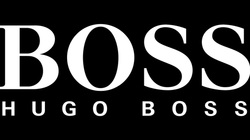
Mohmmad Ayyoub, Hugho Boss store manager, says the brand always has a following there: "We didn't do any advertising," he says. "We didn't do anything outside, we just opened the shop and start business . . .[people] are hungry for brands."
But the Hugo Boss brand is not cheap. Costing around 1000 U.S. dollars, an average Hugo Boss suit is around 28 times the average Nigerian salary. So the question is: who can afford this? While the majority of shoppers in Nigeria won't be able to buy brand Boss, the small minority of oil rich elite will.
Market analyst Bismarck Rewane says luxury brands are increasingly looking to the African continent.
"I will say that 90 percent of the elite in Nigeria buy their consumables or their luxury brands outside of Nigeria. The transition from being destination shoppers to being origin shoppers is just going to start."
Hugo Boss is already looking at opening in other major cities. Other luxury brands have already seen success in Nigeria. Porsche recently opened a showroom in Lagos. And LVMH has a significant foothold in Africa. But it's still very much an untapped market.
As Rewane says, "It's a good sign that we are starting but we are way behind the rest of the emerging markets in terms of positioning ourselves as a luxury goods market in the world." That's unlikely to be the case for long. European brands are seeing a slowdown in their home market, as economies in sub-Saharan Africa begin to grow, and they want to grab a piece of the pie.
Source: Reuters Africa
Follow Erika Amoako-Agyei:
Twitter: http://twitter.com/Erika_Amoako
LinkedIn: http://www.linkedin.com/pub/erika-amoako-agyei/4/882/4a6
Facebook: Africa Business Review Face Page
Facebook: http://www.facebook.com/AfricaBusinessReview
Website: www. AfricaBusinessReview.net
Website: www.AfricaIntercultural.com